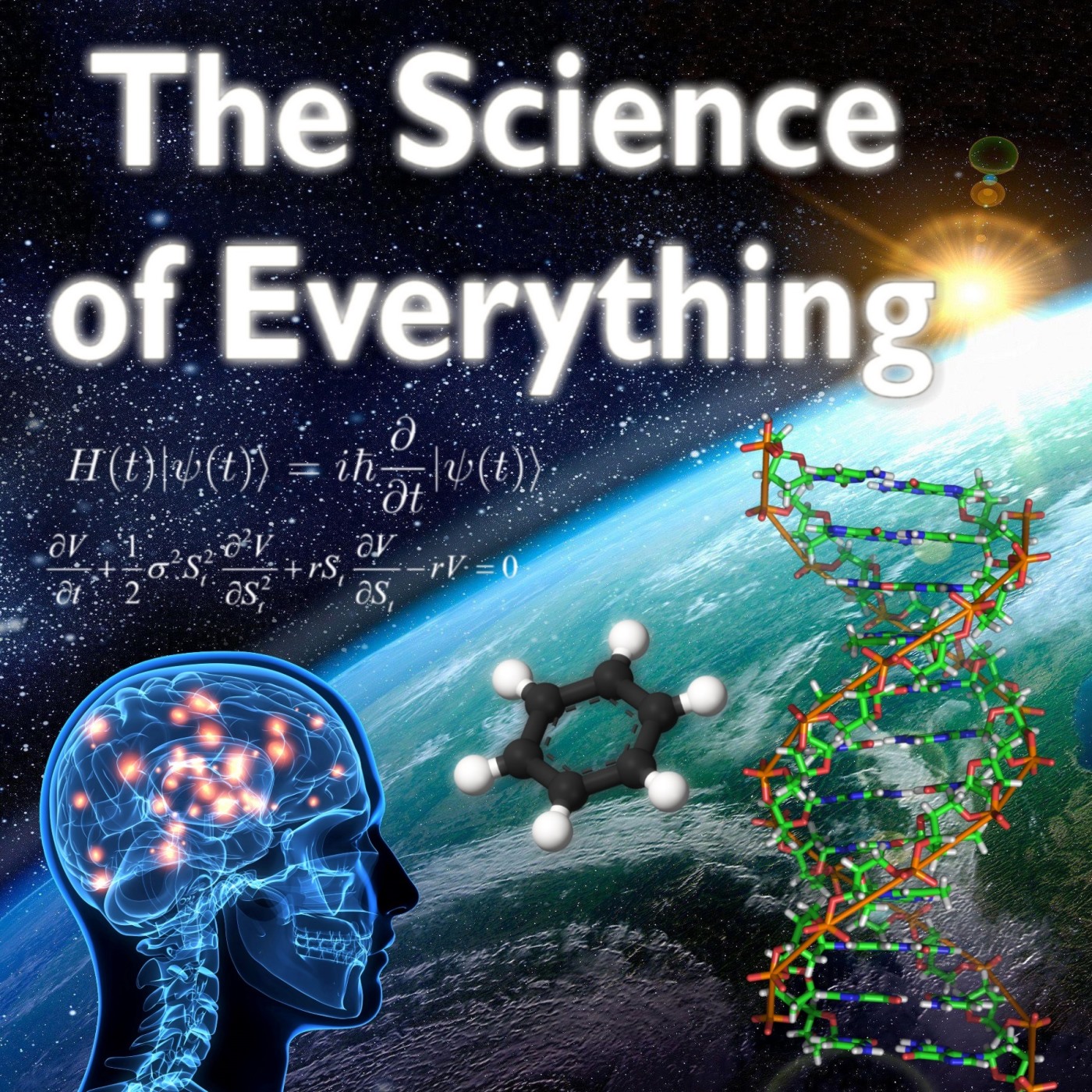

The Science of Everything Podcast
James Fodor
I discuss a variety of topics in both the natural and social sciences, exploring the many fascinating insights that the scientific method yields about the world around us.
Episodes
Mentioned books

Jul 3, 2012 • 52min
Episode 35: DNA Structure and Function Part 2
Continuing on from episode 34, I discuss in detail the processes of DNA replication, transcription from DNA to RNA, and the translation of RNA to proteins. In doing so I examine the molecules and structures involved, the mechanisms of their operation, and how all the processes work together to facilitate the production of proteins from DNA.

Jun 30, 2012 • 43min
Episode 34: DNA Structure and Function Part 1
Dive into the fascinating world of DNA with its iconic double helix structure! Explore the building blocks of life, the nucleotides, and how they play a crucial role in coding proteins. Discover the significance of codons and how they sequence amino acids, revealing the timeless nature of the genetic code. The podcast also unpacks the central dogma of molecular biology, shedding light on how information flows from DNA to RNA to proteins. Get ready to unravel the intricate web of genetic information!

Jun 22, 2012 • 51min
Episode 33: Disturbing Social Psychology Experiments
A discussion of three of the most chilling experiments in the field of social psychology: the Ash Conformity Experiment, the Stanford Prison Experiment, and the Milgram Obedience Experiment. In each case I discuss the motivation and setup of the experiment, outline the results, discuss replications and variations of the original experiment, and end with a look at the implications of the experiment for understanding the darker side of human nature.

7 snips
Apr 14, 2012 • 47min
Episode 32: Light and Optics
Dive into the fascinating world of light and optics! Discover the evolution of our understanding from Newton's corpuscular theory to wave-particle duality. Explore how light interacts with matter through absorption, reflection, and refraction. Unearth the significance of the Michelson–Morley experiment and how electromagnetism reshaped our views. Learn about why materials are classified as transparent or opaque, and how prisms and rainbows create stunning visual effects. This discussion illuminates the science behind the light we often take for granted!

Mar 31, 2012 • 44min
Episode 31: Solutions and Mixtures
An analysis of liquids and their behaviour when mixed with other substances, incorporating a look at solutions, mixtures, colloids and suspensions. Special emphasis is placed on solutions, with a more detailed discussion of solubility, saturation, molarity and bubble formation.

Feb 24, 2012 • 50min
Episode 30: Systems of Government
An overview of the various forms of government that have existed throughout history and across the world, including a discussion of anarchy, democracy, monarchy, autocracy, and various forms of oligarchy, giving some key characteristics and important examples of each. Also includes an introduction to the principles of classification and political comparison.
If you enjoyed the podcast please consider supporting the show by making a paypal donation or becoming a patreon supporter.
https://www.patreon.com/jamesfodor
https://www.paypal.me/ScienceofEverything

Jan 25, 2012 • 33min
Episode 29: Operant Conditioning
Continuing on from episode 28 on Classical Conditioning, in this episode I discuss another form of learning called Operant Conditioning, including the concepts of reinforcers, punishers, shaping, and schedules of reinforcement. I then apply Operant Conditioning theory to understand phenomena such as animal training and how punishments can be effectively used. The episode concludes with a brief look at a third form of learning, Observational Learning.

Jan 7, 2012 • 34min
Episode 28: Classical Conditioning
A discussion of classical conditioning, including an analysis of its key components of the conditioned and unconditioned stimuli and responses, the acquisition process, extinction, recovery, generalization, and discrimination. I also discuss some applications of classical conditioning to understand a wide variety of behaviors, including taste aversion, drug tolerance, sexual fetishes, and emotional responses.

Dec 28, 2011 • 42min
Episode 27: Intermolecular Bonds and Phase Transitions
An explanation of the forces and mechanisms of intermolecular bonding, including dispersion forces, dipole-dipole bonding and hydrogen bonds, with an application of these mechanisms in analysing surface tension. This is followed by a discussion of how phase transitions occur, focusing on evaporation, condensation, boiling and melting. Recommended pre-listening is Episode 15: Chemical Bonding.

Dec 21, 2011 • 31min
Episode 26: Human Organ Systems
A brief overview of all the human organ systems, including their major components and functions. Also includes an examination of how the organ systems work together to promote the proper functioning of the organism. Recommended pre-listening is Episode 25: Organs, Tissues and Systems.


